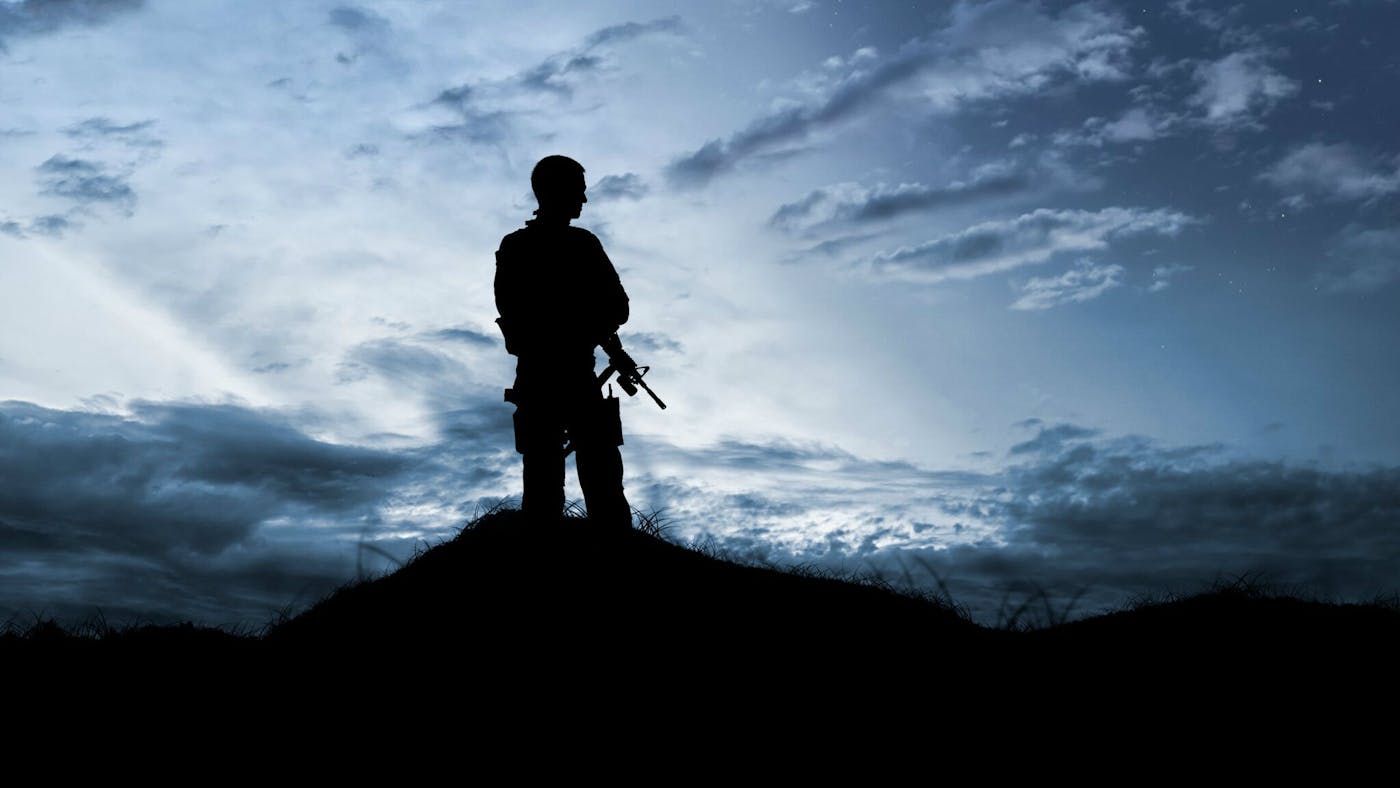5-28-18 The Hardest Battle
The Hardest Battle
Veterans, Suicide, and the Struggle for Identity

Suicide among veterans is a problem, and the problem has no easy solution. Do you know how many U.S. military veterans take their own lives every day?
Twenty-two.
Imagine that for a moment. Twenty-two military veterans take their own lives every single day. Admittedly, the shock of this number cannot be shared without at least noting that the number comes with several caveats and qualifications. And even some veterans say this number is too high. I don’t know if twenty-two is accurate or not, but as a veteran myself, my own experience cautions me against doubting it. My reason is also a number.
Nine.
I personally served with nine Marines who have since taken their own lives. All of these men had their own stories. Each of them had different circumstances — a different context that gave meaning to all their personal narratives. But all had this in common: each of them struggled in a serious battle for identity.
Permanent Marking
The adage you may have heard is this: “Once a Marine, always a Marine.” Undeniable truth fills this phrase. Serving in the Marines, particularly in the infantry, left an indelible mark on me and the others with whom I served. Within a few years of leaving active duty, the subtle desire to relive the glory days becomes a growing yearning. Some go back into service for a time to quench this craving. Others get tattooed. Some start planning battalion reunions. And still others are left with this deep-seated longing that leaves them feeling isolated, misunderstood, and dissatisfied.
“I personally served with nine Marines who have since taken their own lives.”
The hardest thing about being a Marine isn’t boot camp, it isn’t life in the fleet, it’s not even the separation from loved ones for grueling months on end during deployment — it’s letting go of being identified primarily as a Marine. The entire rite of passage of becoming a Marine is one that is strikingly akin to a type of holiness — being drawn out. Life in active duty is a perpetual process of remaining drawn out, adhering to the Marine’s strict code of regulations for haircuts, for how to speak, salute, dress, and so on.
And then one day it ends.
Veterans leave active duty and cease to be who they were for the last four or more years. They enter college or the workplace, and are surrounded by people who don’t know what they have been through, and don’t see them first and foremost as a veteran. They’re just the person people work with, camouflaged in a host of mundane tasks of civilian life — and they feel alone. Something was ripped away. Something is missing, and that something is their identity.
The loss of identity can be devastating. Prolonged periods of solitude in this expansive gap weigh heavily on the heart of the veteran. When this circumstance collides with a broken marriage, loss of a loved one, a habit of alcoholism, or any other number of difficult situations, veterans are left as exposed as if they were taking fire in an open field. With the loss of support, the burden of losing one’s identity feels insurmountable. Suddenly, suicide begins to feel like an alluring and seductive retreat that might finally bring release.
It’s not supposed to be this way.
The temporal reality of being a veteran is but a vapor in the grand sweep of history. An identity does exist, though, that meets veterans in the midst of their solitude, in that battle for a name, in the struggle to be recognized — and it’s that identity which is found in Christ, our warrior-redeemer.
Stubborn Holdouts Against God
“To some, suicide feels like an alluring and seductive retreat that might finally bring release.”
We are all born into war with God, because we are all born into — and love — the sin which God hates (Psalm 51:5; Romans 5:12; 8:7; Ephesians 2:1–3). To be reconciled to God means that this war is ended. And this was only possible by Christ’s suffering and violent death (1 Peter 3:18), by Jesus becoming the sin that he hated and himself suffering the punishment for it (2 Corinthians 5:21). Reconciliation would not have been possible without his death.
After the end of World War II, when Japan surrendered to the Allied powers, many Japanese fighters continued to hold out, still fighting against an enemy that no longer existed, for a power that had already been defeated. In our sin, we are much like the Japanese holdouts — we are still fighting against the triumph of the cross in vain (Colossians 2:15).
We don’t believe that we’ve been defeated. We can’t recognize that the war has already been won. We’ve wrapped up our identity in being holdouts, in not bending the knee. It is a tragedy to willingly remain cut off from God (Ephesians 2:12) and others (Ephesians 4:32–5:1; Titus 3:3) in our rebellion, clinging hopelessly to a defeat that will never save us.
Unfading, All-Satisfying Identity
When we were yet sinners, enemies of God, Christ died for us (Romans 5:8). In bending the knee of surrender to him, he not only forgave the transgressions of us former rebels as if we had never disobeyed, but he lavished us in his riches (Ephesians 1:7–9), placing his righteousness on us as if we had alwaysobeyed (2 Corinthians 5:21).
In Christ we were given a new identity, and by identifying our deepest purpose, our deepest hungers in him, we can finally be satisfied (John 6:35). There is a real pride in being a Marine, but it isn’t lasting. However, there is an identity that is more real, bestowed by the Father himself to all who are found in Christ. God says, “This is my beloved child, with whom I am well pleased.” And this identity is for eternity (John 6:37, 10:28–29).
“We are all born into war with God. To be reconciled to him through Christ means that war is ended.”
What does it mean to embrace this enduring identity? It means that all of our longings to be satisfied, to find meaning, to enjoy a sense of purpose and service are fulfilled in Christ. It means we glorify the one we were made for by finding our satisfaction in him. In short, bearing the identity of Christ means that we respond to him in worship.
We no longer seek to fill our souls with the fleeting pleasure of someone we were. Now it rests in someone who is — in Christ. That identity is the only identity that lasts — never fading, never losing its meaning, never waning, wearing out, or getting old. The only identity that is both unfading and all-satisfying is “to be found in [Christ],” wearing his righteousness, his identity (Philippians 3:9).
Identity That Endures
Challenges and truly heart-wrenching circumstances remain even when our identity is in Christ. Despite the legitimate, real, and difficult seasons that await veterans (or anyone) grasping for a lost identity, we can rest assured, an identity in Christ means that he will never leave us, never forsake us (Deuteronomy 31:6). Our hope does not rest in being “once a Marine,” but in the Christ who always is and always will be (1 Peter 1:3).

Comments